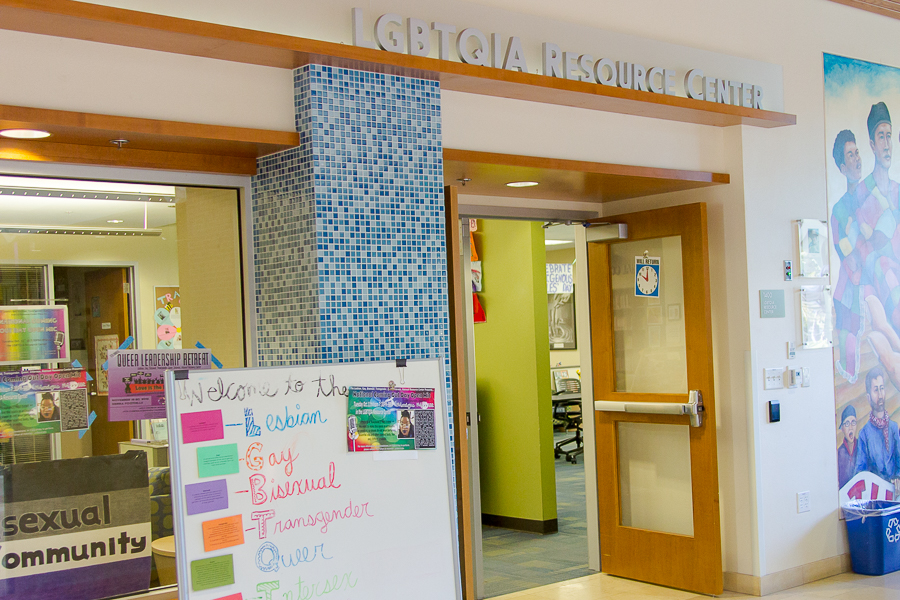
As our country remains as socially divided as ever, the hate and violence stemming from these divisions seems to become more frequent and pervasive, especially in the communities that are most often overlooked.
The LGBT community knows the consequences of this violence all too well. Crimes committed against this community are often hate-driven or bias-motivated — meaning the perpetrator harbors a prejudice against someone based on the victim’s identity.
For nearly all forms of violence, including sexual violence, LGBT people are attacked at much higher rates than heterosexual people. And transgender women of color suffer the most at the hands of assailants.
A Human Rights Campaign (HRC) analysis of violence against transgender individuals showed that between 2013 and 2015, there were 53 recorded victims. Of these, 46 were people of color and 46 were transgender women.
This data only accounts for transgender victims that the HRC was able to identify. Due to discrepancies like underreporting and misgendering, it is more than likely that there are other unknown victims.
In addition to this data, HRC provides a story for every transgender person who was targeted and murdered in 2015. There are a total of 21 stories, and I encourage you to read all of them. It’s much easier to look at the data and think 21 isn’t a big number, but even one murder is too many. These victims are human beings who were brutally attacked and killed just for being themselves. They deserve justice and they deserve to be heard.
But often, an array of factors conspire against the process of getting that justice. First, victims are often misgendered in investigations. The bodies of many transgender people cannot be identified by family or friends because police use their birth name rather than their real name — the ones they go by on a day-to-day basis. This is disrespectful in many ways, but above all because it takes away a crucial part of that person’s identity.
Furthermore, hate-crime laws do not fully protect the LGBT community. A large swath of victims never receive justice because the rules can vary from state to state. Of the 53 recorded victims between 2013 and 2015, only 16 were killed in states with hate crime laws that protect transgender people.
This is the tragic reality: perpetrators of violence are largely not held accountable for their actions. Even if hate crime laws are written to include the LGBT community, they may not account for transgender people. In 2014, HRC reported that 30 states have laws that cover sexual orientation, though only 15 of those states include gender identity or expression. Less than a third of U.S. states protect transgender people from being targeted. Twenty states do not even have hate crime laws to begin with.
This is a serious issue. In almost all the cases, perpetrators, even those who receive sentences, walk away without serious repercussions for committing crimes motivated by hate. This sends the message that there are no real consequences for bias-motivated crimes, and that the LGBT community isn’t important.
Transgender people need to know that if violence is committed against them, they will be protected. All victims of sexual violence already have a difficult time coming forward. For the LGBT community, there is an added fear because of their sexual orientation, gender identity and the discrimination they may face as a result.
According to the HRC, these fears prevent transgender people from reaching out to the police, hospitals and even crisis centers for help because sometimes, awfully, these authorities also contribute to the abuse and assault.
But one’s identity should not determine whether or not they seek help, nor should it determine whether or not they are targets. While changing laws won’t resolve ignorance, prejudice or hatred against transgender people, it isn’t enough to preach acceptance if a majority of our state laws don’t reflect an egalitarian justice system.
Beyond the criminal justice system, it’s time that the narratives of sexual violence extend beyond what media and television condition us to see. Rather than always portraying victims of sexual violence as white and cisgender, we need to remember that other communities are heavily affected by similar types of violence.
There is no traditional victim or perpetrator. The only consistency in the atrocious crimes against the LGBT community is the detrimental consequences for the victims, whose lives are never the same.
Written by: Jeanette Yue –– jyyue@ucdavis.edu







